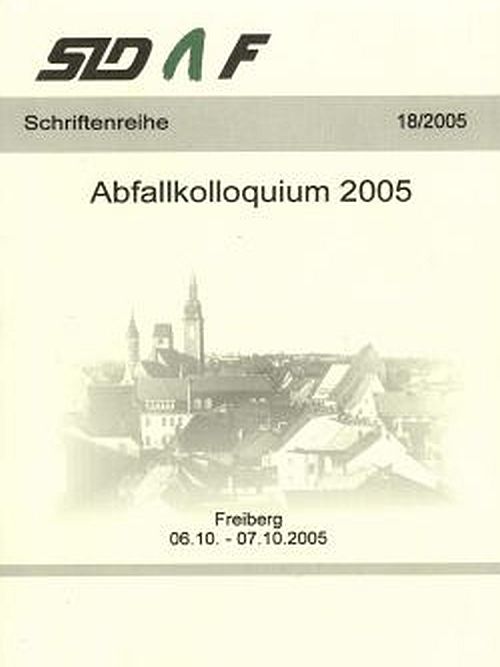The disposal of residual household waste in landfills above ground level can be avoided. This is the outcome of seven scenarios that have been set up in the study entitled "A Future Strategy for Municipal Waste Management (Goal 2020)". Commissioned by the German Federal Environmental Agency, the study was supposed to yield a technical basis for a strategy establishing the entire and ecologically sound recycling of municipal waste (goal 2020).
Main Focus of the study
The main focus of this research project was on household residual waste. Other fractions of household waste, as well as other municipal waste streams, were considered where they had an impact on the composition, the mass or disposal (capacity, market) of the residual waste.
Development of seven scenarios
In this project, the Status Quo of waste treatment techniques as well as currently tested technical reuse and recovery methods were researched with regard to their emissions in all relevant environmental media. The aim of the project was to identify preferable disposal routes for municipal waste. The identified methods of waste treatment were combined with one another with the objective that the goal 2020 be attained by those scenarios. Altogether, seven scenarios were developed and described as examples. Two of them have their focus on waste combustion, three on mechanic-biological waste treatment and two others respectively on waste gasification and purely mechanical treatment.
Conclusions and ideas on the future waste policy
On the ground of these scenarios, the study developed conclusions and some ideas on the future waste policy.
The study can be downloaded. [pdf, 251 KB, German]
Expert advisory board
The project was supervised by an expert advisory board, which included representatives from the German Federal Statistical Office, from the environmental administration, as well as from waste management industry, scientific associations and non-governmental organisations (NGOs):
- Prof. Martin Faulstich (ATZ EVUS)
- Dr. Clemens-Maria Marb (LFU Bayern)
- Patrick Hasenkamp (VKS)
- Frank Rainer Billigmann (BDE)
- Dr. Günther Bachmann (RNE)
- Prof. Max Dohmann (SRU, RWTH Aachen)
- Dr. Hartmut Hoffmann (BUND)
- Susanne Hempen (NABU)
- Gudrun Both (MUNLV NRW)
- Dr. Christel Wies (MUNLV NRW)
- Dr. Diethard Schade (Daimler-Benz Stiftung, und ehemals Akademie für Technikfolgenabschätzung BW)
- Prof. Bernd Bilitewski (TU Dresden)
- Dr. Gottfried Jung (MFU Rheinlnad-Pfalz)





